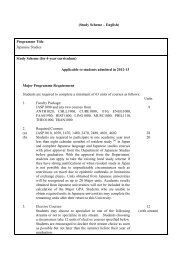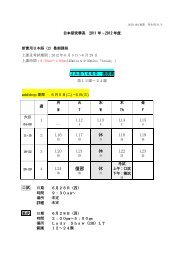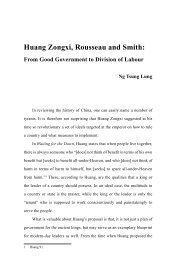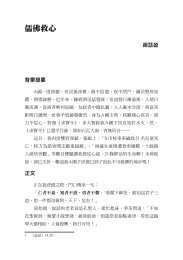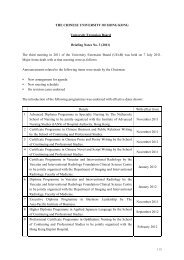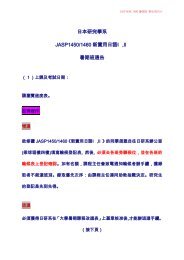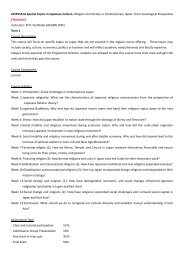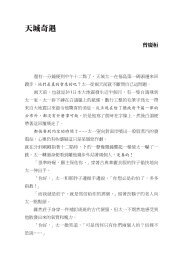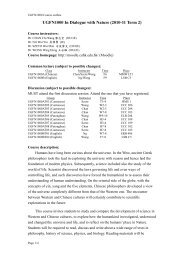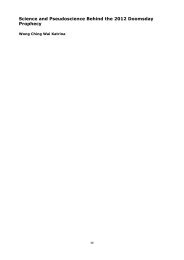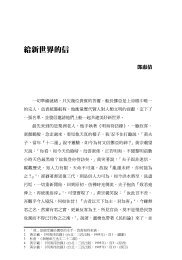ä¸è¼å ¨æ¸ - The Chinese University of Hong Kong
ä¸è¼å ¨æ¸ - The Chinese University of Hong Kong
ä¸è¼å ¨æ¸ - The Chinese University of Hong Kong
Create successful ePaper yourself
Turn your PDF publications into a flip-book with our unique Google optimized e-Paper software.
Wyman Kwok, Education and Thinking 211<br />
Premise #1: Both U.S. tobacco companies and fast-food manufacturers<br />
have made products that are harmful to public health.<br />
Premise #2: U.S. tobacco companies are punished for that.<br />
Conclusion: Fast-food manufacturers should also be punished for that.<br />
This is an analogical argument based on the analogy expressed by Premise #1.<br />
Is this argument convincing or not No, it is not, because the analogy is a<br />
strained one, which can be disclosed by a closer inspection.<br />
<strong>The</strong> two cases <strong>of</strong> making products harmful to health are essentially<br />
different. This can be argued from at least two perspectives. First, there is the<br />
distinction between “intrinsically damaging to health” and “damaging only<br />
when misused.” Tobacco contains substances that are intrinsically damaging<br />
to health, meaning that no matter how small the amount taken, they are<br />
still harmful to health, although in a smaller degree or probability. But the<br />
substances in fast food that are commonly claimed to be harmful to health<br />
— e.g., fat, sugar, and salt — are damaging only when misused, meaning<br />
that only when they are taken in excessive amounts would they be harmful<br />
to health. After all, our bodies need them. <strong>The</strong>refore, are the customers<br />
themselves responsible for eating too much fast food by their own choice<br />
After all, even foods commonly regarded as healthful, such as vegetables or<br />
milk, would be harmful if too much were eaten.<br />
<strong>The</strong> second perspective is concerned with the existence <strong>of</strong> the intention<br />
<strong>of</strong> engaging in a cover-up. <strong>The</strong>re is well-supported evidence showing that<br />
the tobacco companies knew all along that tobacco contains substances that<br />
are intrinsically damaging to health, but intentionally covered up this fact.<br />
However, in the case <strong>of</strong> fast food, that taking too much fat, sugar, or salt is<br />
harmful to health is just common sense. <strong>The</strong>refore, no intention <strong>of</strong> engaging<br />
in a cover up seems to have been involved. <strong>The</strong>refore, are the customers



